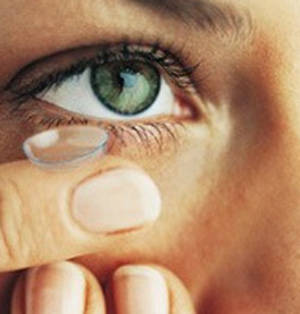
The researchers found that individuals, who did not purchase their contact lenses from an eye doctor, but from an online store, could potentially place themselves at greater risk. This means that such people are less likely to follow healthy eye care practices, like those recommended by their eye doctor.
Now, according to the Contact Lens Institute (CLI), more than 30 million individuals wear contact lenses. With the Fairness to Contact Lens Consumers Act taking effect in 2004, mandating that the prescribing eye doctor provide a copy of the contact lens prescription at no charge to the patient, consumers have the option to purchase their lenses (with a valid prescription) elsewhere. With the Internet becoming a more recognized source for health and medical information, consumers are increasingly purchasing their contact lenses online.
The study, which researched the purchasing and eye care behaviors of contact lens wearers, found that 86% of individuals who purchased their lenses from an eye doctor received a yearly comprehensive eye exam. But, just 76.5% of those individuals who purchased their lenses via the Internet saw an eye doctor on a routine basis.
“We found that a pattern exists regarding the method of contact lens purchasing and following recommendations from the FDA. Those who bought contact lenses at their doctor’s office followed a number of FDA recommendations more so than those who bought contact lenses elsewhere,†said Dr.Fogel.
“Frequent optometric examinations are a vital part of a contact lens wearer’s preventive health care routine. Having one’s eye health and vision examined on a regular, timely basis is important to maintaining overall health and can even lead to early detection of various diseases,” said Louise Sclafani, O.D., chair of the AOA’s Contact Lens and Cornea Section.
During a comprehensive eye exam, one of the most important tests a doctor of optometry administers is a contact lens prescription assessment. An adult’s eyesight can change rapidly and frequently; wearing contact lenses with an incorrect prescription can result in eye discomfort, fatigue, blurred vision and headaches.
“Contact lenses are among the safest forms of vision correction when patients follow the proper care and wearing instructions from their eye doctor,” said Dr. Sclafani. “However, it’s important to remember that contact lenses and the solutions used with them are medical devices regulated by the FDA. Just as when using other medical devices, patients should stay in close contact with their optometrist to ensure they are receiving appropriate and up-to-date clinical guidance based on individual eye health needs.”
